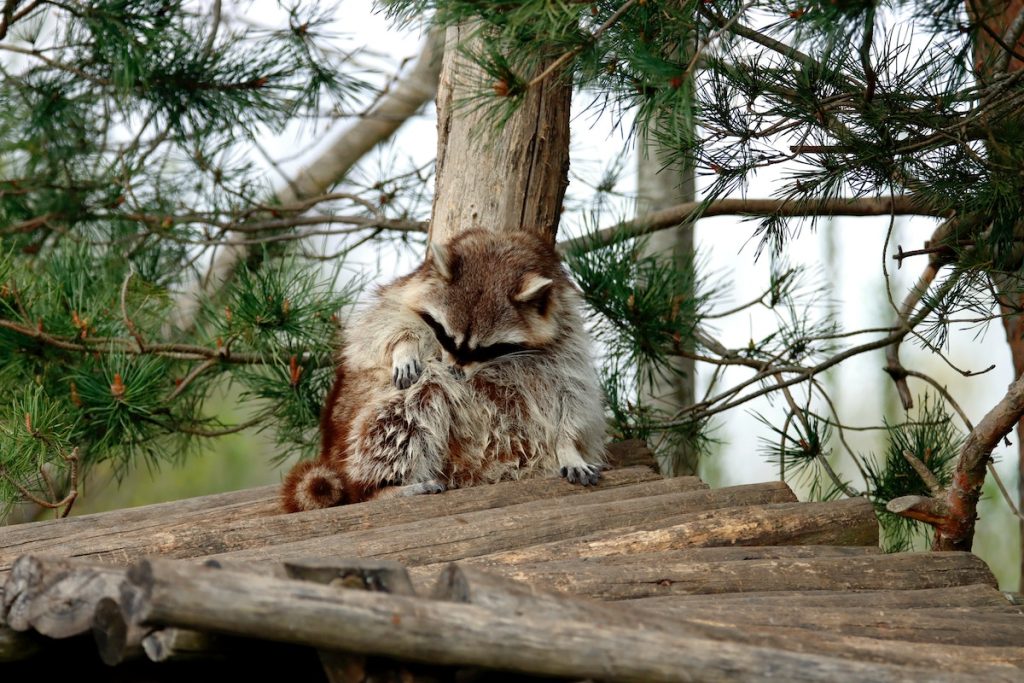- Raccoons in the US reside in various habitats and can cause health hazards.
- Property damage, noise pollution, and a decline in quality of life are common from raccoon infestations.
- Emotional attachment to raccoons can lead to problems, such as feeding them and attracting other wildlife.
- Families can trim trees, secure trash cans, install deterrents, and contact wildlife professionals to mitigate risks.
- Taking proactive steps to keep raccoons away can help ensure your family’s safety and reduce their stress levels.
Many people think of raccoons as cute, fuzzy animals scavenging for food in the wild. However, these creatures can significantly impact our daily lives, especially for families. Raccoons are a common sight in many suburban and urban areas, and they can pose several hazards.
Raccoons in the U.S.
Raccoons are pretty prevalent in the United States. They are found from Alaska down to Panama and reside in almost every type of habitat, including woodlands, grasslands, wetlands, urban areas, and even mountain ranges. As cities become increasingly populated with humans, raccoons move into these urban environments looking for food sources. They can be problematic, and they can affect your family life. Here are some of the most significant ways raccoons can affect your family life and what you can do to mitigate those risks.
Health Hazards
Raccoons have known carriers of several diseases that can be transmitted to humans. These diseases include rabies, salmonella, and leptospirosis. If a raccoon bites or scratches a family member, seeking medical attention is crucial. Additionally, raccoons can contaminate food and water sources, leading to salmonella or other bacterial infections. Families should ensure that trash cans are secure and that all food sources, including pet food, are properly stored.

Property Damage
Raccoons are notorious for causing property damage. These creatures can knock over trash cans, dig up gardens or lawns, and damage structures. They can also chew on wires, which can present a fire hazard. Families with gardens are especially vulnerable since raccoons are known to devour fruits and vegetables. Installing barriers and sealing off access points can help minimize damage. Professional wildlife removal services can also help relocate raccoons and prevent future infestations.
Noise Pollution
Raccoons are nocturnal animals, so it’s common to hear them rustling at night. However, the noise can be disruptive and prevent family members from getting a good night’s sleep. This nuisance can be incredibly challenging if you have infants or children who are light sleepers. Closing windows and using white noise machines can help reduce the impact of raccoon noise.
Decline in Quality of Life
Raccoon infestations can cause stress and anxiety for families. The constant worry about property damage, health hazards, and noise pollution can affect mental health. Additionally, raccoons can restrict outdoor activities, such as barbeques and outdoor play. Families with small children may worry about the safety of their kids when playing outside. Taking steps to address raccoon infestations can help decrease stress levels and improve the overall quality of life.
Emotional Attachment
Although raccoons can be destructive, some families develop emotional attachments to these creatures. Families might feed raccoons or leave out water sources. However, it’s crucial to remember that raccoons are wild animals and should not be treated as pets. Feeding raccoons can also attract other wildlife or cause territorial disputes, leading to more significant problems.
Dealing With Raccoons
Raccoons can be a nuisance, but there are ways to reduce their impact on your family life. Here are some of those ways:

Trim Your Trees
Raccoons love using trees to access rooftops and attics. Trimming back tree branches can reduce their ability to enter your home, thus reducing the risks of encountering raccoons inside the house. If you don’t have the time to do this, hire a local tree service to do it for you. They can trim your trees and even check their health. This way, the trees will become too complex for raccoons to climb.
Secure Your Trash Cans
Raccoons are attracted to trash cans because they can find food or other materials. Invest in secure lids and latches to prevent raccoons from accessing your trash cans. This will help keep the raccoons out of your trash cans and away from your family.
Install Deterrents
A few products on the market are designed to keep raccoons away from homes. Motion-activated sprinklers, light systems, and ultrasonic sound emitters can help deter raccoons from entering your property. Additionally, you can use bird or owl decoys to scare away raccoons.
Wildlife Professionals
If you are having a serious problem with raccoons, it’s best to contact wildlife professionals. These experts can safely remove the animals and prevent them from returning. They also understand how to handle nuisance wildlife humanely and will often relocate the animal instead of trapping or killing them.
Raccoons can have an impact on your family life in many ways. Taking proactive steps to keep these animals away from your home can help ensure your family’s safety and reduce their stress levels. If you need assistance dealing with a wild animal problem, contact a wildlife professional for help. They can provide the best advice and help you prevent future infestations.

